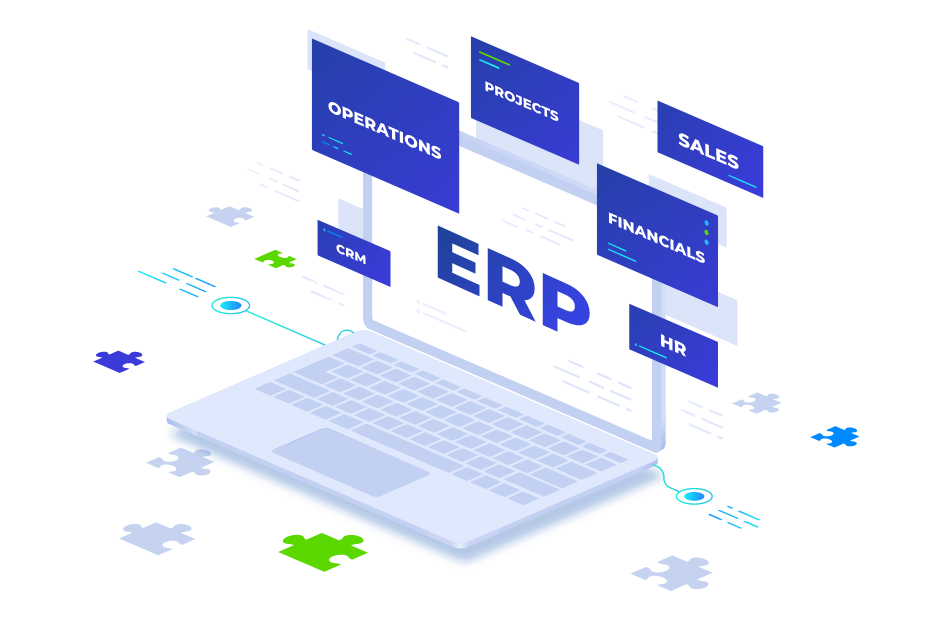
Enterprise resource planning (ERP) systems encompass the entirety of an organization's processes, uniting disparate functions like accounting, HR, or procurement under a single system to drive efficiency and streamline operations.
Let’s explore ERP systems' core aspects, their significance, and effective strategies for successful implementation. You will also discover the potent solution developed by our software house that caters to the unique needs of medium to enterprise sized businesses - but we don’t want to skip too much forward.
What is an ERP system?
ERP systems are software tools designed to facilitate the integration of an organization's core business processes. This unification allows for improved data flow across different departments, enabling them to work more collaboratively and efficiently.
These systems can significantly reduce manual labor, lower operational costs, enhance decision-making, and optimize various business operations, fostering overall organizational growth.
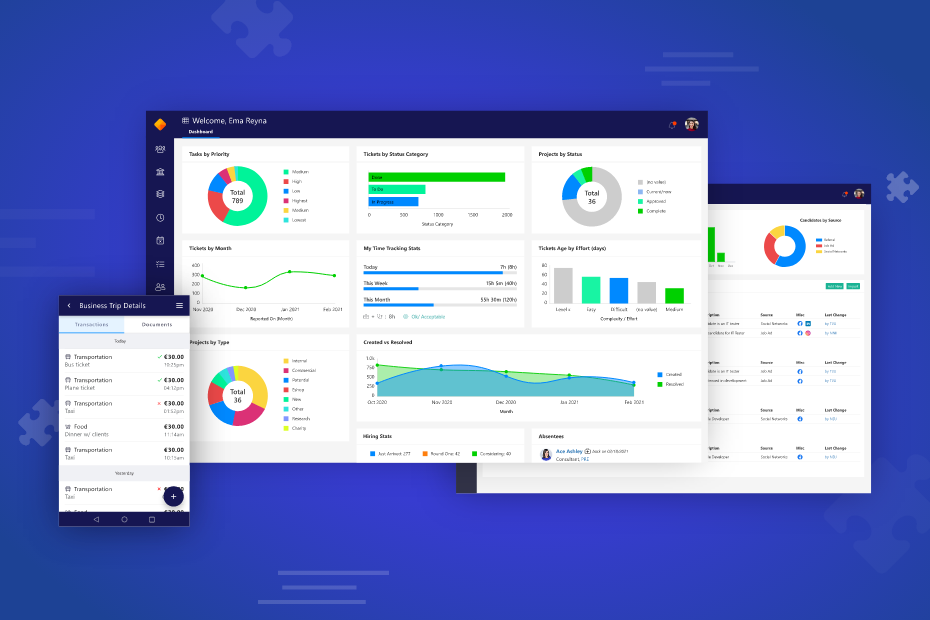
Dissecting an ERP System: The key functional modules
An enterprise resource planning system is a comprehensive suite of integrated applications, each designed to handle different aspects of business operations. Here's a closer look at the core components of an ERP system.
Financial control: accounting and finance
A vital element of any ERP system is the accounting and finance module. This component is designed to handle a wide array of financial operations and provide real-time visibility into the organization's financial status. It houses functionalities such as a general ledger, accounts payable, accounts receivable, and cash management.
The general ledger feature provides a consolidated view of all financial transactions, ensuring data accuracy and facilitating financial reporting. Accounts payable and receivable help manage and track all incoming and outgoing payments, ensuring timely and accurate processing. Cash management allows businesses to monitor and control their cash flow effectively, crucial for maintaining financial stability. Moreover, the ERP's financial reporting capabilities enable businesses to generate detailed financial statements and reports, aiding strategic decision-making.
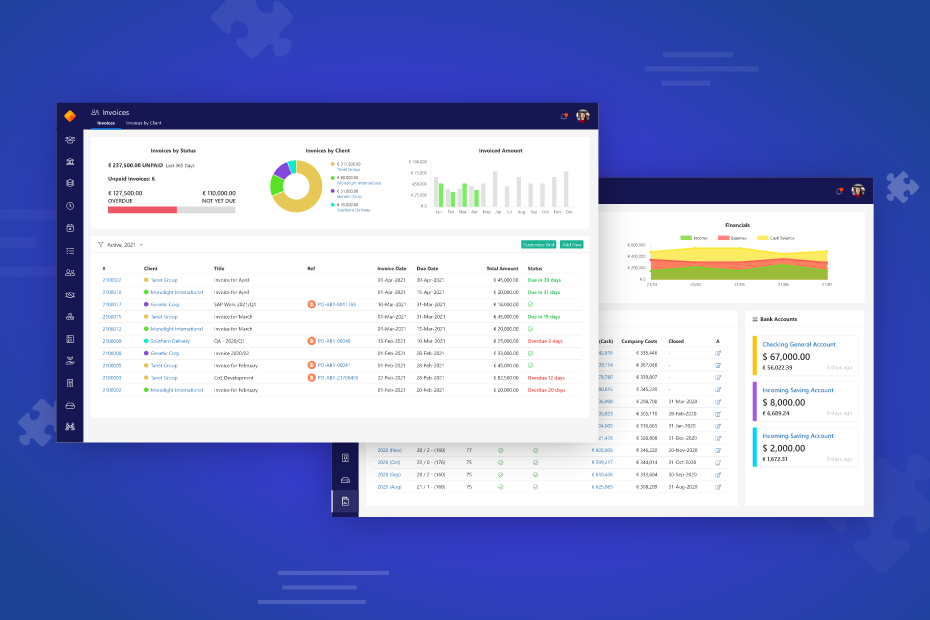
The human element: Human resources
A robust ERP system will offer modules dedicated to human resources (HR) management. These modules act as an integrated HR hub, handling critical aspects like employee records, payroll, recruitment, and performance management.
The employee records feature maintains an up-to-date database of all employee information, from contact details to employment history, essential for HR planning and decision-making. Payroll management automates the calculation and distribution of employee salaries, reducing errors and ensuring timely payment. The recruitment feature streamlines the hiring process, from job posting to candidate selection, enhancing efficiency. Performance management tools provide a platform for regular employee evaluations, critical for growth and development within the organization.
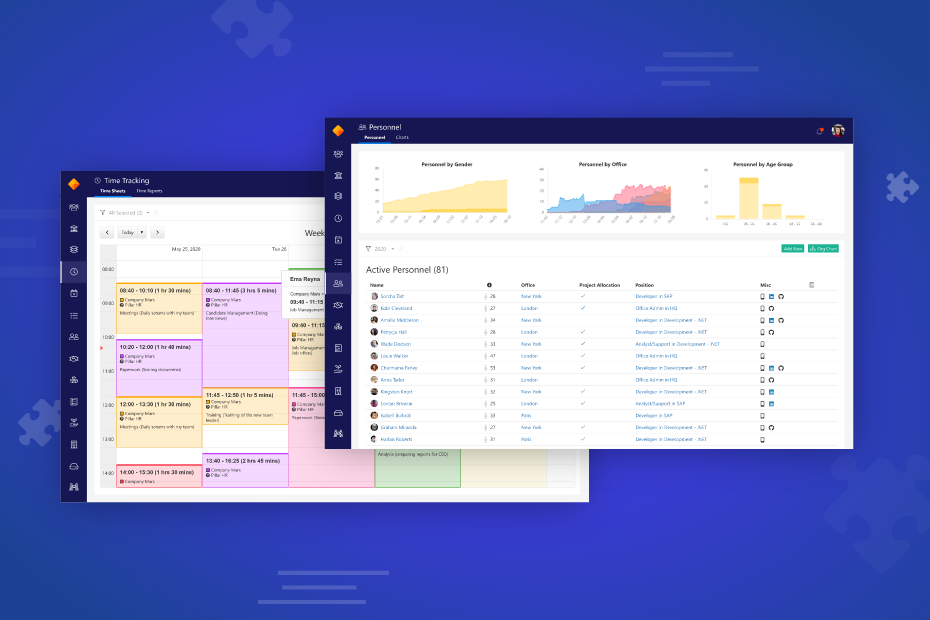
Nurturing relationships: Customer relationship management
Many ERP systems incorporate a customer relationship management (CRM) module. This module is responsible for managing interactions with potential and existing customers, an integral part of any business. It facilitates sales management, customer service, and marketing efforts, enhancing customer experiences and building lasting relationships.
Sales management features allow businesses to track and manage all sales activities, from lead generation to deal closure. The customer service tools enable efficient handling of customer inquiries and issues, ensuring high customer satisfaction. Marketing tools assist in planning and executing marketing campaigns, tracking their effectiveness, and generating valuable customer insights.
Orchestrating success: Project management
The project management module in an ERP system is a powerful tool that helps plan, organize, and manage resource tools and develop resource estimates. It provides a comprehensive overview of all ongoing projects, including timelines, resources, costs, and progress.
This module serves as a central platform where all project-related information is consolidated, providing team members with a unified view and ensuring seamless collaboration. It aids in assigning tasks, tracking progress, managing deadlines, and resolving issues, ultimately leading to improved project delivery times. Furthermore, it helps in budget management, ensuring that the projects are aligned with the financial plans, and provides real-time data for decision making and performance evaluation.
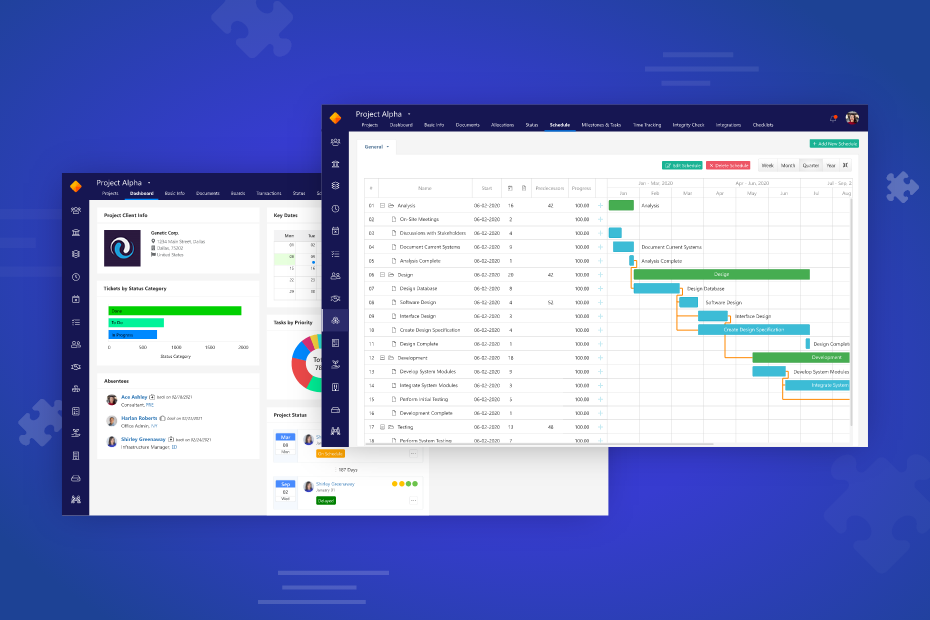
Driving revenue: Sales management
The sales management module in an ERP system is a strategic tool designed to streamline the entire sales process, from lead generation to closing deals. This component helps businesses effectively manage their sales pipeline, track customer interactions, and analyze sales performance.
The module offers features like contact management, opportunity management, order management, and sales forecasting. Contact management enables businesses to keep track of all interactions with customers, helping maintain and strengthen relationships. Opportunity management aids in identifying and managing potential sales opportunities, ensuring no opportunity slips through the cracks. Order management streamlines the order processing, from order creation to delivery, enhancing customer satisfaction. Lastly, sales forecasting tools utilize historical data and predictive algorithms to provide accurate sales forecasts, aiding in strategic planning.
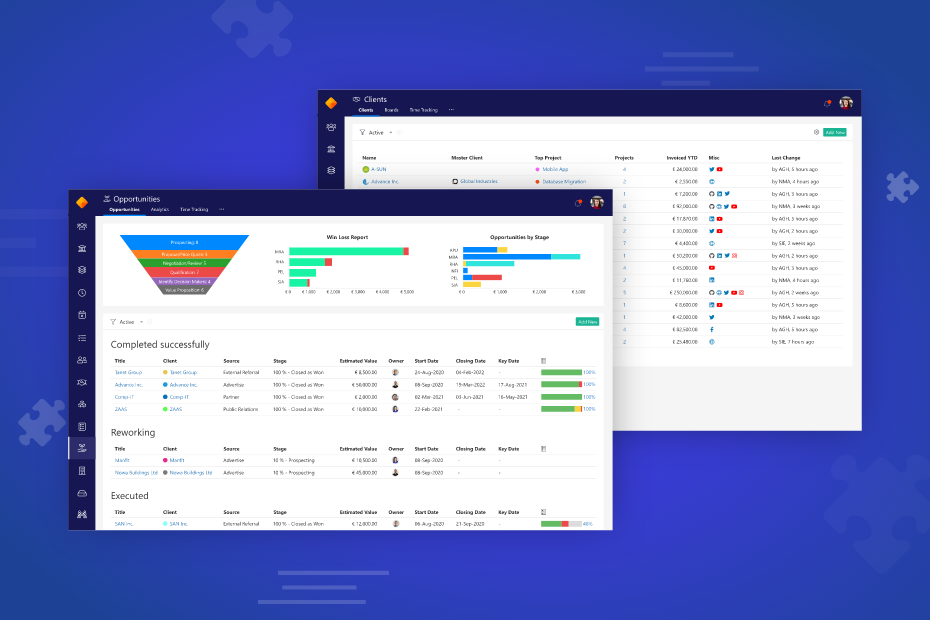
Streamlining operations: Operations management
Operations management is a core component of an ERP system, designed to manage the production and delivery of goods and services efficiently. This module encompasses features such as production planning and scheduling, inventory management, quality control, and maintenance management.
Production planning and scheduling tools provide a clear view of the entire production process, helping businesses plan and optimize their manufacturing activities. Inventory management features ensure that businesses maintain an optimal stock level, preventing overstocking or stockouts. Quality control functionalities enable businesses to maintain high-quality standards in their production process, enhancing product reliability. Maintenance management tools help schedule and track equipment maintenance activities, ensuring their optimal performance and minimizing downtime.
By understanding these key components of an ERP system, businesses can better appreciate the system's comprehensive nature and the multitude of benefits it offers. Each module, though distinct in its function, works synergistically to streamline operations, boost productivity, and drive strategic growth.
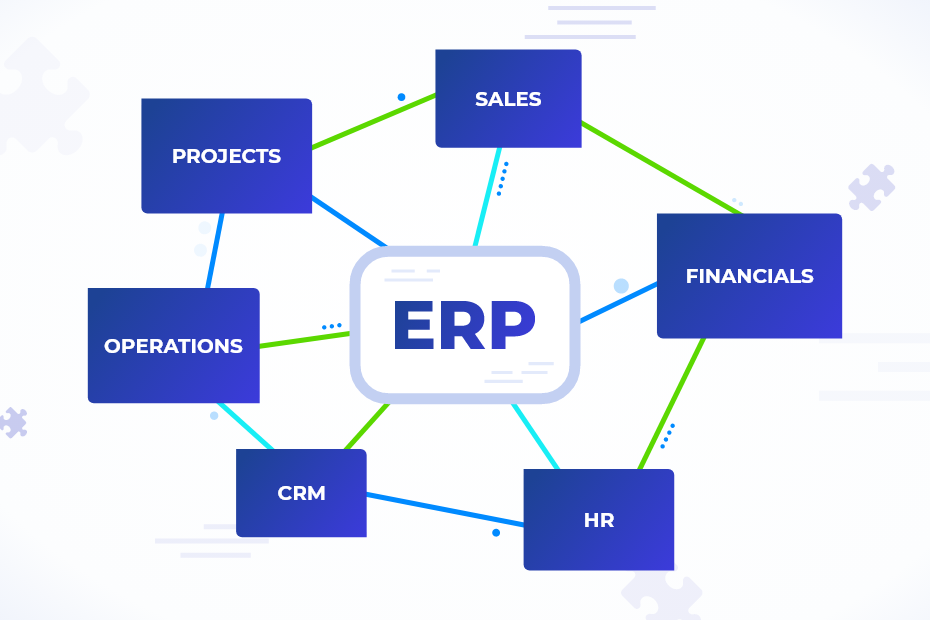
The importance of ERP systems in modern business
As businesses evolve in today's digital age, the demand for integrated and efficient operational systems continues to grow. Enterprise resource planning (ERP) systems have emerged as essential tools, helping businesses to streamline their operations, enhance productivity, and drive growth. Here's an in-depth look at the importance of ERP systems in modern business.
Enhancing operational efficiency
ERP systems bring together all aspects of a business, from production and sales to finance and HR, under one integrated platform. This centralization eliminates data silos, streamlines processes, and facilitates faster decision-making. By automating routine tasks and managing workflows, ERP systems significantly enhance operational efficiency.
Facilitating informed decision-making
ERP systems offer comprehensive reporting and analytics tools that provide real-time business insights. Leaders can monitor various business metrics, identify trends, and understand performance gaps. This wealth of data supports informed, strategic decision-making, helping businesses navigate the competitive business landscape effectively.
Improving customer service
An ERP system can enhance customer service by streamlining processes such as order management, delivery, and after-sales service. Additionally, integrated CRM modules provide a unified view of customer interactions, enabling personalized customer engagement and fostering stronger customer relationships.
Ensuring regulatory compliance
Modern businesses must comply with a range of regulations, from financial reporting standards to data protection laws. ERP systems help maintain compliance by keeping accurate records, automating reporting processes, and ensuring data security and privacy.
Supporting business growth
ERP systems are scalable, meaning they can adapt and grow with your business. As the business expands—whether by increasing the product range, entering new markets, or growing the workforce—the ERP system can accommodate these changes, ensuring a seamless transition.
Enabling cost savings
By automating tasks, improving efficiency, reducing errors, and providing accurate business insights, ERP systems can lead to significant cost savings. They help optimize resource utilization, minimize waste, and avoid costly mistakes—contributing to a healthier bottom line.
In the fast-paced, data-driven world of modern business, ERP systems have become more than a luxury—they're a necessity. By choosing the right ERP system and implementing it effectively, businesses can unlock significant operational advantages and position themselves for sustained success.
The technology behind ERP systems: Unveiling the complex framework
ERP systems are intricate software solutions built on advanced technologies, designed to integrate and streamline various business processes. Let's delve into the underlying technology stack and architecture that powers ERP systems.
Database management systems (DBMS)
At the core of an ERP system lies a robust database management system (DBMS) that serves as the foundation for storing and managing vast amounts of data. Typically, ERP systems employ popular relational database management systems such as Oracle Database, Microsoft SQL Server, or MySQL. These DBMS platforms provide data integrity, security, and efficient retrieval capabilities, enabling ERP systems to handle complex data relationships and ensure data consistency across modules.
Application development frameworks
To build ERP systems, developers rely on powerful application development frameworks. These frameworks provide a structured environment for creating, deploying, and maintaining ERP applications. Commonly used frameworks include Java Enterprise Edition (Java EE), Microsoft .NET, and Ruby on Rails. These frameworks offer a wide range of tools, libraries, and components that streamline the development process, enhance scalability, and support modular architecture.
Integration middleware
ERP systems need to integrate with various external systems, such as customer relationship management (CRM) tools, supply chain management (SCM) software, and other enterprise applications. Integration middleware plays a vital role in connecting these disparate systems, facilitating seamless data exchange and ensuring smooth information flow. Technologies like enterprise service buses (ESBs) and application programming interfaces (APIs) enable interoperability, data synchronization, and real-time communication between different components of the ERP system.
Cloud computing
Cloud computing has revolutionized the ERP landscape, offering scalability, flexibility, and accessibility. Modern ERP systems increasingly leverage cloud-based infrastructure and services, allowing businesses to host their ERP systems in the cloud. This approach eliminates the need for on-premises hardware and provides benefits such as reduced infrastructure costs, improved data security, and simplified software updates. Cloud-based ERP systems also enable remote access, empowering users to access critical business information from anywhere, anytime.
Business intelligence and analytics
ERP systems generate a wealth of data that can be transformed into actionable insights. Business intelligence and analytics technologies play a pivotal role in extracting valuable information from ERP data. These technologies include data warehouses, data mining tools, and reporting platforms. They enable organizations to analyze trends, generate comprehensive reports, and make data-driven decisions. Advanced analytics techniques like machine learning and predictive modeling are also incorporated to provide forecasting and predictive capabilities.
The complex technology stack that underpins ERP systems allows businesses to achieve integration, automation, and enhanced data management. By leveraging the power of databases, application frameworks, integration middleware, cloud computing, and analytics tools, ERP systems enable organizations to streamline operations, make informed decisions, and drive growth in today's digital era.
ERP implementation: The path to success
Implementing an ERP system can be a complex and challenging process. The following strategies can help ensure successful implementation and enhance the value your organization derives from its ERP system.
Understanding and defining business objectives
The first step in ERP implementation is understanding your business's needs and objectives. What are your pain points? Which areas need more efficiency? How can you best leverage technology to meet your business goals? Answering these questions will guide you in customizing your ERP system for optimal impact.
Selecting the right ERP system
The selection of the ERP system is a critical step. Several factors need consideration here. First, consider the system's compatibility with your business processes. Secondly, consider the scalability of the system - can it grow with your business? Also, consider factors like user-friendliness, the vendor's reputation, and customer support quality.
Building a cross-functional implementation team
ERP implementation is a cross-departmental undertaking. It's crucial to build a diverse implementation team with representatives from all relevant departments. This team will not only provide inputs about their respective departments' needs but also play a vital role in securing buy-in from team members during the implementation phase.
Gradual implementation and testing
It can be beneficial to implement the ERP system in phases, with rigorous testing at each stage. This approach allows you to fix any issues that crop up before the system is fully live, and it also allows your team to gradually adapt to the new system.
Training and support
Training is a crucial part of ERP implementation. Ensure that all users are adequately trained to use the system efficiently. Moreover, continuous support should be available to address any issues that arise as employees begin using the system.
Regular evaluation and updates
Post-implementation, the ERP system should be regularly evaluated to ensure that it continues to meet business needs. Regular updates and maintenance are also essential to keep the system running smoothly and securely.
Implementing an ERP system can be a significant undertaking, but with careful planning and execution, it can provide immense value to your organization. By following these strategies, your organization can successfully navigate the ERP implementation process and maximize the system's benefits.
Read on: ERP implementation: Why it can fail and how to succeed
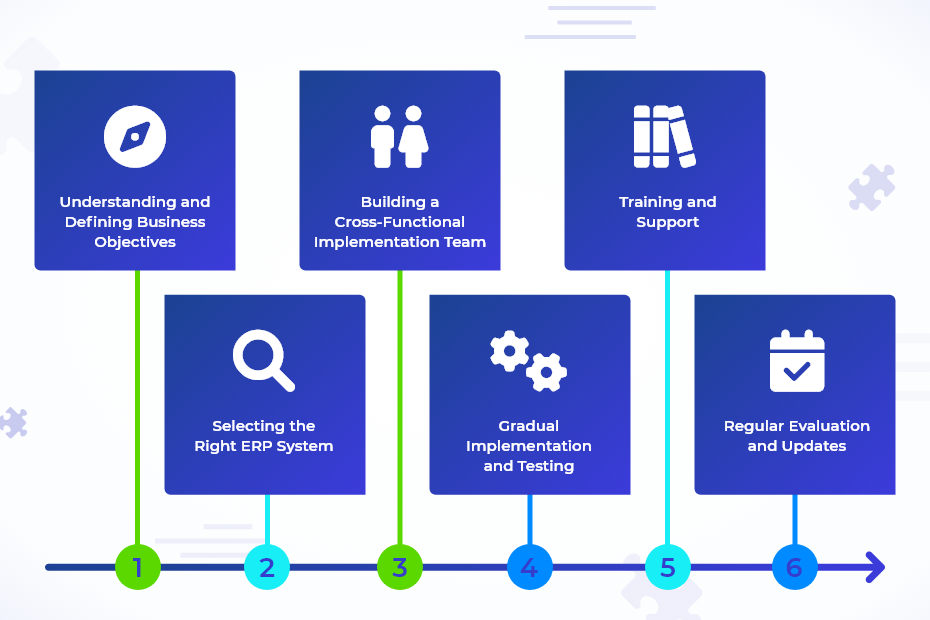
Navigating the technological hurdles in ERP system implementation
Implementing an ERP system can bring significant benefits to an organization, but it's not without potential technological setbacks. Here are a few challenges that businesses may face:
System compatibility: One of the primary technological setbacks can be the compatibility of the ERP system with existing software or hardware within the organization. If the new ERP system is not compatible, it may require significant upgrades or changes to the existing infrastructure, which can be costly and time-consuming.
Data migration challenges: Transferring data from old systems to the new ERP system can be a complex process. There's always a risk of data loss, corruption, or issues with data accuracy during this transition. If not managed carefully, this can lead to serious operational problems.
Complexity of customization: Every business has unique needs and processes, requiring the ERP system to be customized accordingly. However, customizing the ERP system can be a complex process and may lead to system instability if not done correctly.
Technical glitches: Like any other system, ERP systems are not immune to bugs and technical glitches. These can disrupt business operations and require dedicated resources for troubleshooting and resolution.
Security concerns: As ERP systems typically house critical and sensitive business data, they can become targets for cyberattacks. Ensuring the security of an ERP system is crucial but can be challenging.
Scalability issues: As businesses grow and evolve, their needs change. If an ERP system isn't scalable, it might not meet the organization's future requirements, necessitating another costly and time-consuming system change.
Understanding these potential setbacks can help organizations prepare better and create strategies to mitigate these risks during ERP implementation.
ERP implementation success stories: How the right system made a difference
Even the biggest companies can be elevated with the right ERP system. Seamless data access, streamlined processes, and enhanced productivity are feats that are prized throughout every business sector. These two examples of ERP system implementation may change your perspective on the necessity of new, scalable software.
Hershey's sweet success with ERP system implementation
Back in the late 1990s, Hershey's was dealing with legacy systems that were outdated and incapable of supporting their growing operations. These systems were also disjointed, leading to inefficiencies and difficulty in accessing critical data.
To modernize and streamline their operations, Hershey's decided to implement an ERP system from SAP. Here's how it revolutionized their business.
Streamlined business processes: The ERP system allowed Hershey's to standardize and streamline their business processes, eliminating redundancies and increasing operational efficiency.
Improved financial reporting: The ERP system integrated data across departments, enabling automated and accurate financial reporting. This advancement made it easier for Hershey's to track performance and make informed decisions.
Enhanced collaboration: The ERP system provided a central platform for data and process management, improving collaboration among different departments.
Better customer service: With more efficient operations and quicker access to information, Hershey's was able to enhance their customer service, leading to increased customer satisfaction.
Through implementing the ERP system, Hershey's successfully modernized their operations, enhancing efficiency, collaboration, and decision-making processes. This transformation showcases how a well-implemented ERP system can significantly benefit an organization.
Cisco's journey: How an ERP system connected the dots for success
Cisco Systems, known for its networking hardware and software products, faced significant challenges in the early 2000s with its inventory management. The company was dealing with a massive inventory write-down of $2.2 billion because of overestimation of demand and issues with supply chain management.
To overcome these challenges, Cisco decided to implement an ERP system from Oracle, one of the leading providers of such solutions. Here's how it helped them.
Improved inventory management: With the help of the ERP system, Cisco was able to better manage its inventory, significantly reducing overstock issues.
Streamlined processes: The ERP system allowed Cisco to streamline its business processes, improving operational efficiency across the board. This enhancement led to cost savings and improved productivity.
Enhanced decision-making: The ERP system provided real-time data and reporting capabilities, enabling Cisco's management to make informed, timely decisions.
Better customer service: With improved data flow and operational efficiency, Cisco could enhance its customer service, leading to higher customer satisfaction levels.
The implementation of an ERP system played a crucial role in helping Cisco overcome its business challenges, demonstrating the profound impact such a system can have on a company's operations.
Elevating your business with Vault ERP, Rare Crew's ERP solution
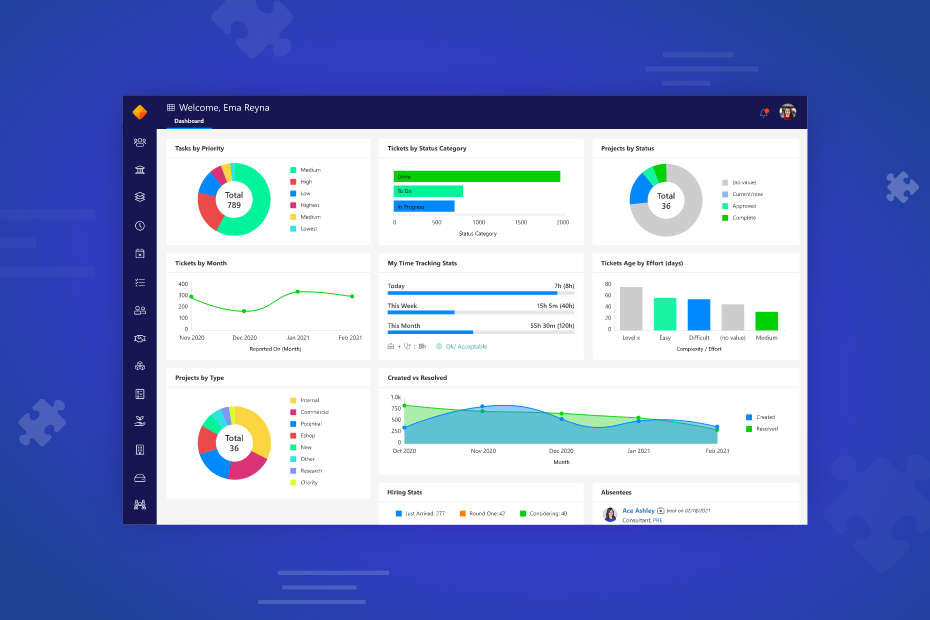
Are you looking to streamline your business operations, enhance collaboration, and improve decision-making? Explore Vault ERP, an intuitive ERP solution developed by our team.
Vault ERP offers a suite of features designed to optimize your business operations. Its versatility and scalability make it suitable for businesses of almost all sizes and sectors, providing a comprehensive solution for your organization's needs.
Another benefit is that Vault ERP provides you with comprehensive educational resources before you choose a suitable software solution. You can find out more in Vault ERP’s Ultimate Guide to Project Management, Ultimate Guide to KPIs, and ERP-focused blog.
If you are ready to transform your business with us, don’t hesitate. Get in touch today to schedule a free demo.
